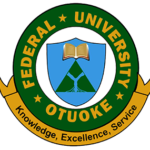NBAIS Past Questions and answers: Are you about to write NBAIS Exam on either SAISSCE, Tahfeez or Science? If yes, we recommend you to download NBAIS SAISSCE past questions, NBAIS Tahfeez past questions and NBAIS science past questions. We provide past questions for the all National Board for Arabic and Islamic Studies exam curriculum. Available are materials for senior, junior and primary category.
On this page, free NBAIS past questions have been provided for you to study but they are limited in number. In order to get the complete material, proceed and make purchase with the account number given below, after studying the the sample questions offered for free.
When making an order for the material, please specify for which of the levels you want to download when sending your email and proof of payment to us. Example; ‘i need NBAIS past questions for senior level’ See details below after studying the following sample objective questions.
Table of Contents
How to Download the Complete Past Questions
Make payment the sum of 2,000 naira to the acount details given below. Send your email and the depositors name to us via 08100923529 or call. Once your payment is confirmed. The past questions will be delivered to you through email and whatsapp immediately.
Bank Name: Eco Bank
Account Number: 2340023733
Account Name: M. JOHN KOFFI
Samples of Objective (OBJ) NBAIS Past Questions
Question 1
“Indeed the people before you were destroyed by asking a lot of unnecessary questions …”
The quotation above is in Hadith 9 of An-Nawawi which refers to the
A) People of the Book
B) Quraysh
C) People of Madinah
D) Arabs.
The correct answer is A.
Explanation:
why is Hadith 9 of An – Nawawi refers to the people of the book
Explanation provided by Kehinde
Question 2
Who among the six compilers of Hadith became blind before his death?
A) Nasa’i
B) Abu Da’ud
C) Ibn Maja
D) Tirmidhi
The correct answer is D.
Explanation:
Various researchers say that he was born blind or he became blind during his late years and this could be found in any of his historical books.
Question 3
In Q.17:27, the extravagant are likened to associates of
A) pious people
B) pharaoh
C) satan
D) soothsayers
The correct answer is C.
Samples of (Theory) NBAIS Past Questions:
1 (a) Define the term Nikāh.
(b)Enumerate ten categories of people prohibited to be married according to Qur’ān 4:22-24.
Answers
(a)Nikāḥ is an Arabic word meaning “Marriage”,literally, it connotes tying or knotting,It is a legal contract between a man and a woman to be husband and wife.
(b) Mothers.
- Daughters
- Sisters
- Paternal aunts
- Maternal aunts.
- Brother’s daughters.
- Sister’s daughters
- Foster mothers
- Foster sisters
- Mothers of your wives
- Step daughters born of wives
- Wives of your sons
- Two sisters together.
- Already married women.
- Father’s wives.
- Grandfather’s wives.
-
Highlight the factors that promoted the study of Hadith after the death of the Prophet (S.A.W.)
Answers
- Hadith means words, actions and silent/tacit approval of the Prophet (S.A.W.)
- During the life time of the Prophet (S.A.W.) and even after his death, his companions (Aṣḥāb) used to refer to him directly, when quoting his sayings.
- The successors ( Tābi cūn) followed suit as some of them used to quote the Prophet (S.A.W) through the companions while others would omit the intermediate authorities.
- Many companions of the Prophet (S.A.W.) committed themselves to the study of the Hadith.
- It has also been noted that prominent companions e.g. cAli, ibn Mascūd and ibn ‘Abbās would advise the Tābicūn to learn the Hadith.
- The transmission of Hadith was passed down from generation to generation.
- Thousands upon thousands of people began to transmit Ḥadith
- Consequently, deliberate fabrication of Aḥādīth by various sects led to the revival of the study of Hadith.
- As time passed by, more reports were involved in each Isnād, so the situation demanded strict discipline in the acceptance of Aḥādīth
- These led to the verification of authentic Ḥadith.
- Likewise, the science of <em>Matn </em>(text) took root.
- The science of Asmā’ ar-Rijāl came into study.
- The desire of the Muslims to follow the Sunnah of the Prophet (S.A.W.) also served as a factor.
-
Examine the relationship between Prophet Muhammad (S.A.W.) and the Jews in Madinah
Answers
- When Prophet Muhammad (S.A.W.) arrived in Yathrib, he met three Jewish clans (Banū Qaynuqā’, Banū Nadīr and Banū Qurayza).
- Prophet Muhammad (S.A.W.) issued a document to the Muslims with which he entered into an agreement with the Jews in 622 C.E.
- The document spelt out the rights of the Muslims and the Jews.
- He (S.A.W.) ensured that the Jews enjoyed equal status with the Muslims.
- He (S.A.W.) gave them freedom to worship as they deem fit
- In matters of dispute between the Muslims and the Jews, the Prophet (S.A.W.) showed fairness to each party.
- The Prophet (S.A.W.) guaranteed the Jews immunity from raids by nomads within Yathrib.
- There was no express stipulation that the Jews should formally recognize Muhammad (S.A.W.) as a Prophet of Allah.
- Upon arrival, the Prophet (S.A.W.) adopted the Jewish Qiblah.
- Jews suffering injustice received assistance from the ’Ummah document.
- The security of Yathrib was a joint responsibility of both the Muslims and the Jews.
- The relationship between the Prophet (S.A.W.) and the Jews was one of the mutual advice, consultation and charity rather than aggression.
- But when the Jews began act of hostilities towards the Prophet (S.A.W.) and the Muslims, they were expelled from the city.
- After the expulsion of the three Jewish clans, Yathrib was renamed Madīnatun – Nabawi (Madinah).
- After the campaign at Khaybar, the Prophet (S.A.W.) married Ṣafiyyah bint Ḥuyayy, a Jewish lady.
How to Download the Complete Past Questions for NBAIS
Candidates who are about to write the NBAIS exam can download the past questions on this page. To get this past questions immediately, chat me up on whatsapp or call 0810092529





I need nbais past question and answer urgently pls
Hi
Nbais please questions about examy
I ALSO NEED THE NBAIS PAST QUESTION . ALHAMDULILLAH THE PROCEDURE IS STATED
Pls I need hint on NBAIS nd questions on it
I need 2021 questions please
ineed answer for 2021